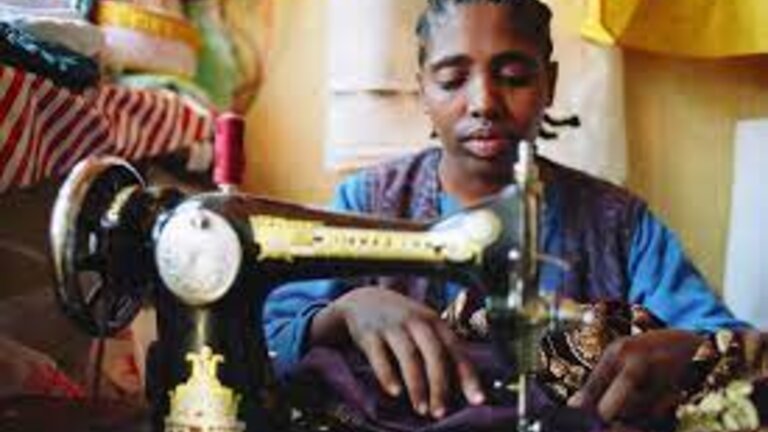The right to work and employment for persons with disabilities still seems elusive even as Kenya marks 20 years since the principal legislation on disability - the Persons with Disabilities Act - came into place, and as Kenya prepares to submit its second State report to the United Nations Committee on the Rights of Persons with Disabilities, 15 years after the ratification of the United Nations Convention on the Rights of Persons with Disabilities.
In April this year, the National Council for Persons with Disabilities, released its first report on the Disability Mainstreaming Status Report within Ministries, Departments, and Agencies (MDAs). This report revealed a worrying state in the strive towards achieving disability inclusion in Kenya. Only 1.4% of public service employees are persons with disabilities, and less than 1% of the sampled MDAs have attained the 5% employment quota as provided for by the Disability Act. Further, these employees with disabilities majorly occupy middle - and low-level positions. It is, therefore, no surprise the revelation from the 2021 Economic Survey report by the Kenya National Bureau of Statistics that most persons with disabilities are involved in entrepreneurship, particularly, micro business. Additionally, the Status of Compliance with Values and Principles in Articles 10 & 232 of the Constitution by the Public Service Commission highlighted gaps in the inclusion of persons with disabilities in various aspects of public service e.g., employment, accessibility, and reasonable accommodation.
These persisting barriers to access to decent work and employment for persons with disabilities necessitate investment in entrepreneurship programs for persons with disabilities to support their enterprises.
The Kenyan government has set up some programs for economic empowerment for persons with disabilities in entrepreneurship. The National Council for Persons with Disabilities (NCPWD) through its National Development Fund for Persons with Disabilities provides funds for persons with disabilities through economic empowerment grants and tools of trade for entrepreneurs.
The grants are accessed through registered organizations of persons with disabilities and are aimed at enabling the organizations to gain the skills and experience to access the loans required to grow their business and to gain self-sufficiency in generating income, while the tools of trade are accessed through individual applications. The latter is one of the key funding opportunities for persons with disabilities who have undergone vocational training and would like to set up enterprises in their area of training. The NCPWD in collaboration with the Kenya Commercial Bank also provides a financing product to provide Local Purchase Order (LPO) and Local Service Order (LSO) financing for entrepreneurs with disabilities with a capping of up to KES.500,000.

The National Fund for the Disabled of Kenya (NFDK) is another government initiative established for the socioeconomic empowerment of persons with disabilities through its programs and flagship projects. NFDK supports persons with disabilities entrepreneurship both at individual and organizational levels. Through the tools of trade program, entrepreneurs with disabilities are provided with income-generating tools to assist them in establishing start-ups in the areas they are skilled in for them to achieve economic freedom, similar to the NCPWD program. The only difference is that the NCPWD applications go through the NCPWD office, and the NFDK applications are submitted through the Office of the County Commissioner.
The Public Procurement and Disposal Act provides for 30% Access to Government Procurement Opportunities (AGPO) for women, youth, and persons with disabilities. The aim of AGPO is to give opportunities to these enterprises to do business with the government, through affirmative action. The LPO/LSO financing program by NCPWD and Kenya Commercial Bank is one of the funding opportunities for persons with disabilities aimed at enhancing their capacity to access government procurement opportunities. However, there are still challenges in access to AGPO opportunities for entrepreneurs with disabilities. According to the AGPO Report launched by The Institute of Social Accountability (TISA) on the 30th of March 2023, women received 50% of the contracts awarded with its total value being Ksh. 13.81 Billion. The youth received 44% of the contracts awarded with its total value being Ksh. 10.65 Billion. Persons with disabilities received 6% of the Contracts Awarded with its total value being Ksh. 2 Billion.
Non-state actors have also set up entrepreneurship programs for persons with disabilities to build their technical business skills, enhance their access to business development support, and foster inclusive business environments for persons with disabilities entrepreneurship. The Inbusiness initiative by Light for the World, United Disabled Persons of Kenya (UDPK), Sense International, and Humanity and Inclusion supports micro-entrepreneurs with disabilities through technical business skills training, business development support services, and linkage to markets. The initiative also works with county-level networks of organizations of persons with disabilities, to create awareness of and advocate for inclusive business environments – both in policy and practice.
On the other hand, Sight Savers International, under the Inclusive Futures Initiative, is leading the Global Labour Program (GLP) in collaboration with UDPK, Central Organization of Trade Unions (COTU), private sector players (East Africa Breweries Limited (EABL), and Coca-Cola Beverages Africa (CCBA), to test innovative ways to improve economic empowerment and inclusion for persons with disabilities. In conjunction with Syngenta Foundation East Africa and TechnoServe, the GLP program strengthens the technical skills of farmers with disabilities to produce sorghum into the EABL value chain and of women retailers with disabilities retailing Coca-Cola products within the CCBA value chain.
These non-state actors' initiatives have showcased effective models to foster economic empowerment for persons with disabilities, establishing effective entrepreneurship programs in Kenya for persons with disabilities, and ensuring disability-inclusive business environments.
